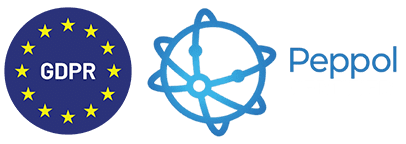Overview
- Understanding Field Service Route Optimization
- Strategies to Improve Field Service Routing
- Benefits of Route Optimization for Field Service Companies
- Key Factors to Consider in Route Optimization
- Challenges of Manual Route Planning
- Advantages of Automated Route Optimization
- Key Takeaways for Field Service Companies
- Steps to Implement Effective Route Optimization
Efficient management of field service routes is crucial for timely service delivery, cost reduction, and maintaining high levels of customer satisfaction. For service-oriented businesses, optimizing routing is a fundamental component of operational success. This guide delves into the intricacies of field service route optimization, exploring how it can streamline operations, the benefits it offers, and the strategies for successful implementation.
Understanding Field Service Route Optimization
Field service route optimization involves the strategic planning of the most efficient routes for technicians to take when servicing clients. This process takes into account various factors, such as scheduling, transportation logistics, and the sequence of service stops. By minimizing travel time and reducing fuel consumption, effective route optimization enables technicians to complete more jobs efficiently.
In today’s competitive market, field service companies must rely on optimized routing to meet customer expectations and control operational costs. Additionally, route optimization supports environmental sustainability by cutting down on carbon emissions, which aligns with broader corporate social responsibility goals.
Strategies to Improve Field Service Routing
Enhancing field service routing requires a combination of strategic planning and advanced technological tools. Here are key strategies to consider:
Automate Route Planning
Automating the route planning process is crucial for improving efficiency. Advanced field service management software leverages artificial intelligence to optimize scheduling in real time, taking into account technician availability, skill sets, and geographic location. This approach reduces the chances of scheduling errors and ensures that resources are deployed effectively.
Leverage Real-Time Data
Utilizing real-time data is essential for making informed routing decisions. Field service management software that provides real-time updates on technician locations and job statuses allows businesses to dynamically adjust routes to accommodate changes, such as last-minute service requests or cancellations. This flexibility enhances both operational efficiency and customer responsiveness.
Incorporate Customer and Environmental Preferences
While logistical considerations are primary, integrating customer preferences and environmental impact into route planning can further enhance service quality. For instance, some clients may prioritize quicker service, while others might prefer eco-friendly routes. By incorporating these preferences, companies can improve customer satisfaction and contribute to sustainability efforts.
Benefits of Route Optimization for Field Service Companies
Effective route optimization offers numerous advantages:
- Increased Efficiency: Optimized routes reduce travel time and fuel consumption, enabling technicians to handle more jobs each day.
- Enhanced Customer Satisfaction: Accurate ETAs and minimized delays improve the customer experience.
- Cost Savings: Reduced fuel use and optimized scheduling lower operational costs.
- Scalability: Automated route planning supports business growth without requiring additional dispatch staff.
Key Factors to Consider in Route Optimization
To successfully optimize routes, companies must address several key factors:
Evaluate Current Workflow
Before adopting new routing software, assess your current workflow to identify inefficiencies and areas for improvement. Gathering data on past routing decisions and performance will provide valuable insights for optimizing processes.
Choose the Right Software
Selecting the appropriate field service management software is vital for effective route optimization. Look for a platform that offers scalability, user-friendliness, and seamless integration with your existing systems. Robust features like real-time tracking, automated scheduling, and adaptability are essential.
Train Your Team
The successful implementation of routing software hinges on comprehensive training and team buy-in. Ensure that all technicians and dispatchers are proficient in using the new system. Training should not only cover technical aspects but also emphasize the benefits of the new technology to encourage positive adoption.
Challenges of Manual Route Planning
While manual route planning is possible, it becomes increasingly challenging as a business expands. Manual processes are time-consuming, prone to errors, and lack the flexibility needed to adapt to real-time changes. Automated route optimization, on the other hand, offers a scalable and efficient solution for handling complex routing decisions.
Advantages of Automated Route Optimization
Automating route optimization brings several significant benefits:
- Increased Productivity: By reducing the time spent on manual planning, technicians can focus on completing more service calls.
- Improved Customer Service: Automated systems provide accurate ETAs and enable better communication with customers, leading to higher satisfaction.
- Cost Efficiency: Automated routing minimizes fuel consumption and labor costs, improving the company’s financial performance.
- Scalability: As your business grows, automated systems can easily accommodate more technicians and service calls without the need for additional dispatch resources.
Key Takeaways for Field Service Companies
For field service companies aiming to optimize their routing processes, the following points are critical:
- Embrace Technology: Implement advanced field service management software to automate and refine routing decisions.
- Prioritize Customer Preferences: Factor in customer and environmental considerations to enhance service quality and sustainability.
- Invest in Training: Ensure your team is well-equipped to use new routing tools effectively, maximizing their potential for improving efficiency.
Steps to Implement Effective Route Optimization
To start optimizing your field service routes, follow these steps:
- Assess Current Workflow: Identify inefficiencies and opportunities for improvement in your routing processes.
- Select the Right Software: Choose a field service management platform that aligns with your operational needs.
- Train Your Team: Provide comprehensive training to ensure the successful adoption of new routing software.
- Monitor and Adjust: Regularly evaluate the effectiveness of your routing strategy and make necessary adjustments to optimize performance.
Optimizing field service routing is essential for achieving operational excellence, reducing costs, and enhancing customer satisfaction. By leveraging advanced field service management software and implementing the strategies outlined in this guide, businesses can streamline their operations, improve service delivery, and position themselves for sustained success.
In an evolving field service landscape, staying ahead with optimized routing is key to maintaining a competitive edge and ensuring long-term growth.











